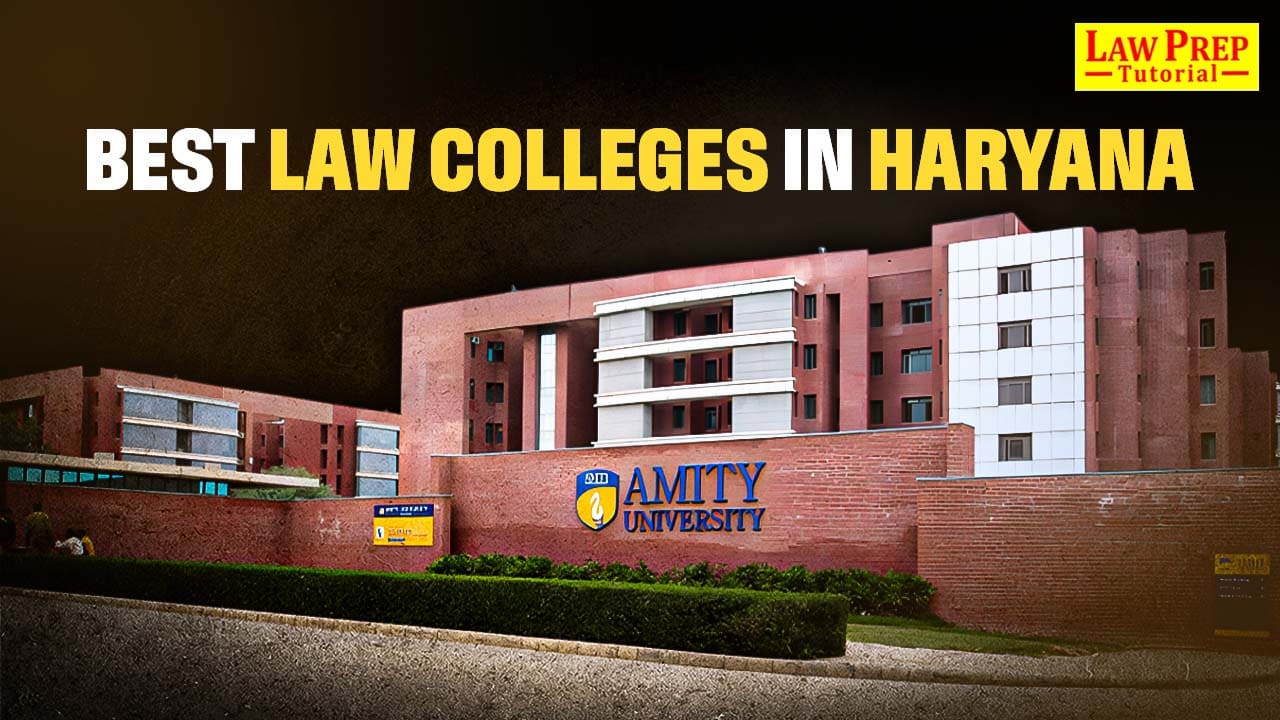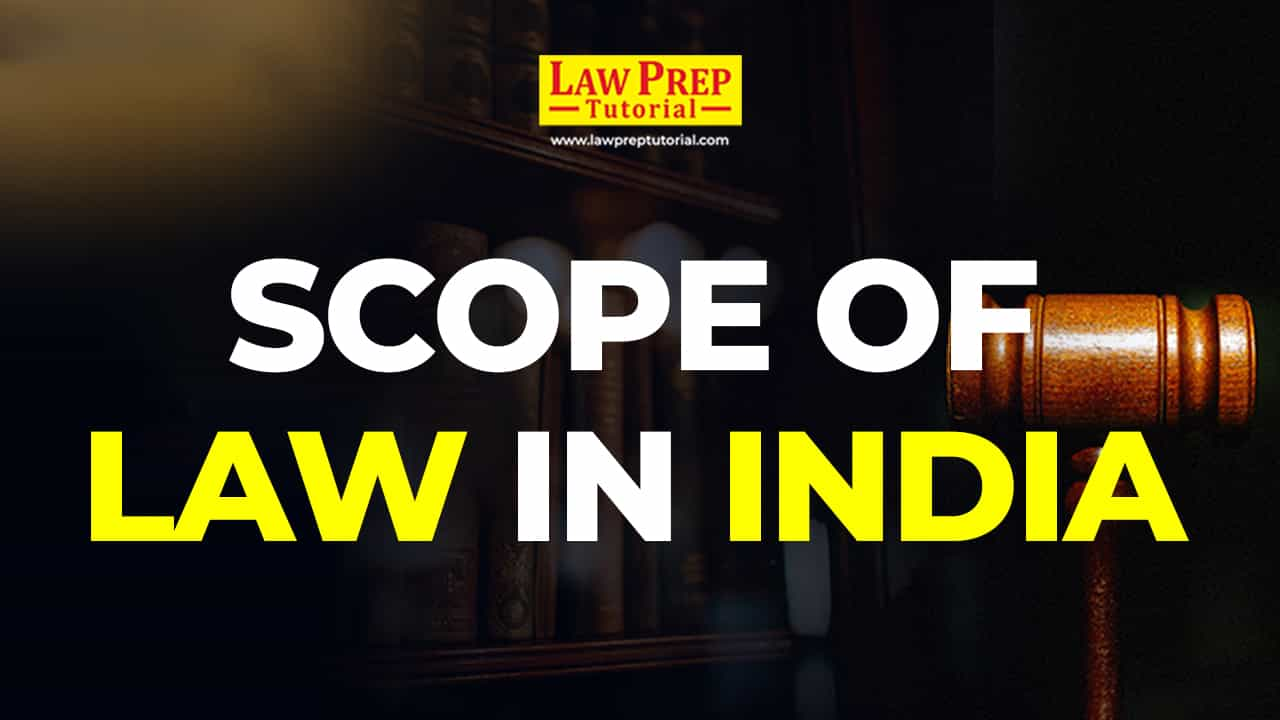If you dream of becoming a successful lawyer or judge, your journey begins with clearing one of the law entrance exams in India. These competitive tests open doors to top National Law Universities (NLUs), government, and private law colleges across the country.
Each year, lakhs of students appear for major law entrance tests like CLAT, AILET, SLAT, and more to secure admission in 5-year integrated, 3-year LLB, or LLM programs.
In this guide, we’ve listed all upcoming law entrance exams, eligibility, syllabus, and key dates to help you plan your preparation strategically and get one step closer to your law dream.
Aspiring for India’s top law schools? Book free counselling with the online CLAT coaching.
Upcoming CLAT Exams:
Upcoming Law Entrance Exams 2027–2028 (UG)
These are the top law entrance exams after 12th for admission to top law colleges offering 5-year integrated courses:
| Exam Name | Conducting Body | Expected Exam Date (2027–2028) |
| CLAT | Consortium of NLUs | CLAT 2027: 6 Dec 2026 CLAT 2028: 5 Dec 2027 |
| AILET | NLU Delhi | AILET 2027: 13 Dec 2026 AILET 2028: 12 Dec 2027 |
| SLAT | Symbiosis International University | Dec 2026 (Two slots) |
| RULET | University of Rajasthan | June 2026 |
| AIL LET | Army Institute of Law, Mohali | May 2026 |
| NMIMS LAT | SVKM’s NMIMS | Jan–Mar 2026 (Phase 1), Mar–May 2026 (Phase 2) |
| LNAT | LNAT Consortium (Pearson VUE) | Sept 2025 – July 2026 |
| MHCET Law | State CET Cell, Maharashtra | April 2026 |
| JMI CET Law | Jamia Millia Islamia | May 2026 |
| PUCET Law | Panjab University | January 2026 |
| CULEE | Christ University | December 2026 |
3-Year LLB Entrance Exams in India
These are the top 3-year LLB entrance exams in India:
| Exam Name | Conducting Body | University / Institute |
| NLSAT | NLSIU Bangalore | National Law School of India University |
| DU LLB | NTA (for Delhi University) | Faculty of Law, University of Delhi |
| BHU LLB | Banaras Hindu University | Faculty of Law, BHU |
| NAIET | NLU Odisha | National Law University Odisha |
| CUET LLB | National Testing Agency (NTA) | Participating Central Universities |
| IIT KGP LLB | IIT Kharagpur (RGSOIPL) | Rajiv Gandhi School of IP Law |
| SLS AIAT | Symbiosis International University | SLS Pune |
LLM Law Entrance Exams in India
These are the top law entrance exams after graduation to pursue LLM:
| Exam Name | Conducting Body |
| CLAT PG | Consortium of NLUs |
| AILET PG | NLU Delhi |
| CUET LLM | National Testing Agency (NTA) |
| SLS AIAT (LLM) | Symbiosis International University |
| DU LLM | NTA (for Delhi University) |
| TISS NET | Tata Institute of Social Sciences |
CLAT (Common Law Admission Test)
The CLAT is India’s number 1 law entrance exam. CLAT 2026 exam date was 7th December 2025. If you are looking to appear for this exam next year, then prepare for CLAT 2027 Exam Date, which is scheduled to be held on 6 December 2026.
Conducted by the Consortium of NLUs, it offers admission to 26 NLUs, which are among the top-ranked law schools in India. Universities like NLSIU Bangalore (NIRF Rank 1), NALSAR Hyderabad (NIRF Rank 3), and NUJS Kolkata (NIRF Rank 4) stand as dream institutions for every law aspirant.
CLAT UG: Key Highlights
| Particulars | Details |
| Exam Name | Common Law Admission Test (CLAT) |
| Conducting Body | Consortium of NLUs |
| Courses Offered | 5-Year Integrated BA LLB (Hons), LLM |
| CLAT Exam Date | 6 December 2026 |
| Application Dates | 1 August – 31 October 2026 (tentative) |
| Exam Mode | Offline (Pen & Paper) |
| Duration | 2 Hours |
| Total Questions | 120 MCQs |
| Sections | English Language, Current Affairs (GK), Legal Reasoning, Logical Reasoning, Quantitative Techniques |
| CLAT Marking Scheme | +1 for correct, -0.25 for incorrect |
| CLAT Eligibility Criteria | Class 12 with minimum 45% (40% for SC/ST) |
NLUs Participating in CLAT
Find the list of National Law Universities (NLUs) accepting CLAT:
| S.No. | NLU Name | Location |
| 1 | National Law School of India University (NLSIU) | Bengaluru, Karnataka |
| 2 | NALSAR University of Law | Hyderabad, Telangana |
| 3 | National Law Institute University (NLIU) | Bhopal, Madhya Pradesh |
| 4 | WB National University of Juridical Sciences (WBNUJS) | Kolkata, West Bengal |
| 5 | National Law University, Jodhpur (NLUJ) | Jodhpur, Rajasthan |
| 6 | Gujarat National Law University (GNLU) | Gandhinagar, Gujarat |
| 7 | Hidayatullah National Law University (HNLU) | Raipur, Chhattisgarh |
| 8 | Dr. Ram Manohar Lohiya National Law University (RMLNLU) | Lucknow, Uttar Pradesh |
| 9 | National University of Advanced Legal Studies (NUALS) | Kochi, Kerala |
| 10 | Rajiv Gandhi National University of Law (RGNUL) | Patiala, Punjab |
| 11 | Chanakya National Law University (CNLU) | Patna, Bihar |
| 12 | Damodaram Sanjivayya National Law University (DSNLU) | Visakhapatnam, Andhra Pradesh |
| 13 | National Law University Odisha (NLUO) | Cuttack, Odisha |
| 14 | National Law University and Judicial Academy (NLUJA) | Guwahati, Assam |
| 15 | National University of Study and Research in Law (NUSRL) | Ranchi, Jharkhand |
| 16 | Tamil Nadu National Law University (TNNLU) | Tiruchirappalli, Tamil Nadu |
| 17 | Dr. B.R. Ambedkar National Law University (DBRANLU) | Sonipat, Haryana |
| 18 | Maharashtra National Law University, Mumbai (MNLU Mumbai) | Mumbai, Maharashtra |
| 19 | Maharashtra National Law University, Nagpur (MNLU Nagpur) | Nagpur, Maharashtra |
| 20 | Himachal Pradesh National Law University (HPNLU) | Shimla, Himachal Pradesh |
| 21 | Maharashtra National Law University, Aurangabad (MNLU Aurangabad) | Aurangabad, Maharashtra |
| 22 | Dharmashastra National Law University (DNLU) | Jabalpur, Madhya Pradesh |
| 23 | National Law University Tripura (NLUT) | Agartala, Tripura |
| 24 | GNLU Silvassa Campus | Silvassa, Dadra & Nagar Haveli |
| 25 | Dr. Rajendra Prasad National Law University (RPNLU) | Prayagraj, Uttar Pradesh |
| 26 | India International University of Legal Education & Research (IIULER) | Goa |
AILET (All India Law Entrance Test)
The AILET is one of the top law entrance tests in India, conducted exclusively by National Law University, Delhi (NLU Delhi).
NLU Delhi is the 2nd-best law college in India as per NIRF Law Rankings. Known for its academic excellence, global exposure, and top placement packages, NLU Delhi attracts thousands of aspirants every year.
AILET UG: Key Highlights
| Particulars | Details |
| Exam Name | All India Law Entrance Test (AILET) |
| Conducting Body | National Law University, Delhi |
| Courses Offered | BA LLB (Hons), LLM, PhD |
| Exam Date | AILET 2027: 13 December 2026 AILET 2028: 12 December 2027 |
| Application Dates | August – October (Tentative) |
| Exam Mode | Offline (Pen & Paper) |
| Duration | 120 Minutes (2 Hours) |
| Total Questions | 150 Multiple Choice Questions |
| Marking Scheme | +1 for correct, -0.25 for incorrect |
| Eligibility (UG) | Class 12 with minimum 45% (40% for SC/ST/PwD) |
| Participating College | NLU Delhi |
AILET Exam Pattern and Syllabus
| Section | Number of Questions | Marks | Description |
| Section A: English Language | 50 | 50 | Tests comprehension, vocabulary, grammar, and reasoning through passages. |
| Section B: Current Affairs & General Knowledge | 30 | 30 | Covers national and international current events, history, polity, and general awareness. |
| Section C: Logical Reasoning | 70 | 70 | Includes analytical reasoning, puzzles, critical thinking; may use legal principles to test logic (no prior legal knowledge required). |
| Total | 150 | 150 | Duration – 120 minutes |
Important Resources After CLAT Exam:
| CLAT Result | CLAT Toppers |
| CLAT Answer Key | CLAT Allotment List |
| CLAT Cut Off | CLAT Rank Predictor |
| CLAT College Predictor | CLAT Marks vs Rank |
| CLAT Counselling | CLAT Question Paper |
SLAT (Symbiosis Law Admission Test)
The SLAT exam, short for Symbiosis Law Admission Test, is one of the most prominent law entrance exams in India for admission to Symbiosis Law Schools (SLS) across Pune, Noida, Hyderabad, and Nagpur.
It is conducted by Symbiosis International (Deemed) University (SIU) and is known for its balanced test pattern that assesses reasoning, comprehension, and legal aptitude.
SLAT UG: Key Highlights
| Particulars | Details |
| Exam Name | Symbiosis Law Admission Test (SLAT) |
| Conducting Body | Symbiosis International (Deemed) University |
| Participating Colleges | 4 Symbiosis Law Schools (Pune, Noida, Hyderabad, Nagpur) |
| Courses Offered | 5-Year Integrated BA LLB / BBA LLB |
| Exam Mode | Computer-Based (Online) |
| Exam Duration | 1 Hour |
| Total Questions | 60 |
| Marking Scheme | +1 per correct answer, No negative marking |
| Exam Cities | 68 Test Cities Across India |
| Eligibility | 10+2 with 45% (40% for SC/ST) |
| Application Window (Tentative) | October – November |
| SLAT Exam Dates | December 2026 (Two slots) |
| Result Announcement | January 2027 |
Symbiosis Law Schools for SLAT
| Institute Name | Location | Courses Offered |
| Symbiosis Law School (SLS) | Pune | BA LLB (Hons), BBA LLB (Hons), B.Com LLB (Hons) |
| Symbiosis Law School (SLS) | Noida | BA LLB, BBA LLB |
| Symbiosis Law School (SLS) | Hyderabad | BA LLB, BBA LLB |
| Symbiosis Law School (SLS) | Nagpur | BA LLB, BBA LLB |
SLAT Exam Pattern and Syllabus
| Section | No. of Questions | Marks |
| Logical Reasoning | 12 | 12 |
| Legal Reasoning | 12 | 12 |
| Analytical Reasoning | 12 | 12 |
| Reading Comprehension | 12 | 12 |
| General Knowledge | 12 | 12 |
| Total | 60 | 60 |
AIL LET (Army Institute of Law- Law Entrance Test)
The AIL LET, conducted by the Army Institute of Law (AIL), Mohali, is one of the prominent law entrance exams in India for admission to its 5-year integrated law programs – BA LLB (Hons.) and B.Com LLB (Hons.).
Known for its disciplined learning environment and strong placement records, AIL is a premier institute functioning under the aegis of the Indian Army and affiliated with Punjabi University, Patiala.
About Army Institute of Law, Mohali
| Particular | Details |
| Institute Name | Army Institute of Law (AIL), Mohali |
| Affiliated To | Punjabi University, Patiala |
| Approved By | Bar Council of India (BCI) |
| Programs Offered | BA LLB (Hons.), B.Com LLB (Hons.) |
| Course Duration | 5 Years (10 Semesters) |
| Campus Location | Sector 68, Mohali, Punjab |
AIL LET 2026: Key Highlights
| Particulars | Details |
| Exam Name | Army Institute of Law Entrance Test (AIL LET) |
| Conducting Body | Army Institute of Law (AIL), Mohali |
| Exam Level | National |
| Exam Mode | Online (Computer-Based Test) |
| Exam Date (Expected) | May 2026 |
| Duration | 2 Hours |
| Total Questions | 200 (Objective Type) |
| Marking Scheme | +1 for each correct answer, No negative marking |
| Courses Offered | BA LLB (Hons.), B.Com LLB (Hons.) |
| Application Window (Tentative) | March – April 2026 |
AIL LET Exam Pattern
| Section | Number of Questions | Description |
| English | 50 | Grammar, vocabulary, comprehension, and verbal reasoning |
| General Knowledge | 50 | Static GK, current affairs, Indian polity, economy |
| Legal Aptitude | 50 | Legal terms, principles, and analytical understanding |
| Mental Ability | 50 | Logical reasoning, analytical puzzles, and data interpretation |
| Total | 200 Questions | Duration: 2 Hours |
MH CET Law (Maharashtra Common Entrance Test for Law)
The MH CET Law (Maharashtra Common Entrance Test for Law) is a state-level law entrance exam in India conducted by the State Common Entrance Test (CET) Cell, Maharashtra.
It serves as the gateway to over 10,000+ seats in government, aided, and private law colleges in Maharashtra offering 5-Year Integrated LLB and 3-Year LLB programs.
Known for its simple format and fair evaluation process, MH CET Law is one of the most popular law entrance exams in 2026–2027, especially for students aiming to pursue law within Maharashtra.
About MH CET Law Exam
| Particular | Details |
| Full Name | Maharashtra Common Entrance Test for Law (MH CET Law) |
| Conducting Authority | State CET Cell, Maharashtra |
| Exam Level | State-Level (Undergraduate) |
| Courses Offered | 5-Year Integrated LLB, 3-Year LLB |
| Participating Colleges | Government, aided, and private law colleges in Maharashtra |
| Languages | English and Marathi |
| Frequency | Once a Year |
MH CET Law: Key Highlights
| Particulars | Details |
| Exam Name | MH CET Law |
| Conducting Body | State CET Cell, Maharashtra |
| Exam Level | State-Level (UG) |
| Courses Offered | 5-Year LLB & 3-Year LLB |
| Exam Mode | Online (Computer-Based Test) |
| Duration | 120 Minutes |
| Total Questions | 120 Multiple Choice Questions |
| Marking Scheme | +1 for each correct answer, No negative marking |
| Medium of Exam | English and Marathi |
| Application Window (Tentative) | January – February 2026 |
| Exam Date (Expected) | April 2026 |
| Application Fee | ₹800 (General/EWS/OMS) |
MH CET Law Exam Pattern (5-Year LLB)
| Section | Number of Questions | Marks | Description |
| Legal Aptitude & Legal Reasoning | 32 | 32 | Legal awareness, principles, and aptitude-based reasoning |
| Logical & Analytical Reasoning | 32 | 32 | Logical deductions, puzzles, patterns, and analytical thinking |
| General Knowledge & Current Affairs | 24 | 24 | Current events, static GK, polity, and economy |
| English | 24 | 24 | Grammar, vocabulary, comprehension |
| Basic Mathematics | 8 | 8 | Arithmetic, percentages, averages, and basic data interpretation |
| Total | 120 | 120 | Duration – 120 Minutes |
LNAT (Law National Aptitude Test)
The LNAT is an international-level law entrance exam conducted by the LNAT Consortium and administered by Pearson VUE. It is widely accepted by top law universities in the United Kingdom, including Oxford, Cambridge, LSE, UCL, and King’s College London.
The LNAT is designed to test your aptitude, reasoning, and analytical skills; not your knowledge of law. It helps universities assess whether you possess the critical thinking and comprehension skills needed to study law successfully.
Top Universities Accepting LNAT Scores
| Country | Universities Accepting LNAT |
| United Kingdom | University of Oxford, University of Cambridge, King’s College London (KCL), London School of Economics (LSE), University College London (UCL), Durham University, University of Bristol, University of Glasgow, University of Nottingham, SOAS University of London |
| Singapore | Singapore University of Social Sciences (SUSS) |
| Other Countries | Select global universities accepting LNAT for law admissions |
LNAT: Key Highlights
| Particulars | Details |
| Exam Name | Law National Aptitude Test (LNAT) |
| Conducting Body | LNAT Consortium (Administered by Pearson VUE) |
| Exam Level | International |
| Exam Mode | Online Computer-Based Test (CBT) |
| Duration | 2 Hours 15 Minutes |
| Total Questions | 42 Multiple Choice + 1 Essay |
| Marking Scheme | +1 per correct answer, No negative marking |
| Eligibility | Students applying for undergraduate law programs through UCAS |
| Application Window | 1 August 2025 – 15 September 2025 |
| Testing Window | September 2025 – July 2026 |
| Participating Universities | 10+ UK and global law schools |
LNAT Exam Pattern and Structure
| Section | Type | No. of Questions | Duration | Description |
| Section A: Reading Comprehension | Multiple Choice | 42 | 95 minutes | Based on passages that test reading comprehension, reasoning, and interpretation skills. |
| Section B: Essay Writing | Descriptive | 1 (choose from 3 topics) | 40 minutes | Tests ability to construct logical arguments and draw conclusions. |
| Total Duration | — | — | 2 Hours 15 Minutes | Score out of 42 for Section A; Essay reviewed by universities. |
Free CLAT Study Material for You:
| CLAT Previous Year Question Paper | CLAT Sample Papers |
| CLAT Topper Interviews | Free CLAT Coaching |
| CLAT Current Affairs | CLAT Study Material |
NMIMS LAT (NMIMS Law Aptitude Test)
The NMIMS LAT, also referred to as NMIMS Law Aptitude Test, is a national-level law entrance exam in India. It is conducted by SVKM’s Narsee Monjee Institute of Management Studies (NMIMS) for admission to its prestigious law schools across Mumbai, Navi Mumbai, Bengaluru, Indore, Hyderabad, and Chandigarh.
The test is conducted online and evaluates a candidate’s proficiency in reasoning, English, and legal aptitude.
About NMIMS Law School
| Particular | Details |
| University Name | Narsee Monjee Institute of Management Studies (NMIMS) |
| Programs Offered | BA LLB (Hons.), BBA LLB (Hons.) |
| Affiliated To | Deemed-to-be University |
| Approved By | Bar Council of India (BCI) |
| Campuses | Mumbai, Navi Mumbai, Bengaluru, Indore, Hyderabad, Chandigarh |
| Program Duration | 5 Years (10 Semesters) |
NMIMS LAT: Key Highlights
| Particulars | Details |
| Exam Name | NMIMS Law Aptitude Test (NMIMS LAT) |
| Exam Level | National |
| Exam Mode | Online (Computer-Based Test) |
| Exam Duration | 120 Minutes |
| Total Questions | 150 Objective Type |
| Marking Scheme | +1 for each correct answer, No negative marking |
| Exam Phases (Tentative) | Phase 1: Jan–Mar 2026; Phase 2: Mar–May 2026 |
| Application Window | December 2025 – April 2026 |
| Courses Offered | 5-Year Integrated BA LLB (Hons.) and BBA LLB (Hons.) |
| Eligibility | 10+2 with minimum 45% marks (any stream) |
| Exam Cities | Conducted in major cities across India |
NMIMS LAT Exam Pattern and Syllabus
| Section | Number of Questions | Marks | Duration |
| Verbal Reasoning (English) | 30 | 30 | 120 mins total |
| General Knowledge & Current Affairs | 30 | 30 | |
| Quantitative Reasoning | 30 | 30 | |
| Logical Reasoning | 30 | 30 | |
| Legal Reasoning | 30 | 30 | |
| Total | 150 | 150 | 2 Hours (120 Minutes) |
JMI CET Law (Jamia Millia Islamia Entrance Test for Law)
The JMI CET Law is a national-level law entrance exam in India conducted by Jamia Millia Islamia (JMI), New Delhi. It is held annually for admission to the prestigious 5-year integrated BA LLB (Hons.) program offered by the Faculty of Law, JMI.
Known for its rigorous academic curriculum and emphasis on research and social justice, JMI is among India’s top-ranked central universities.
About Jamia Millia Islamia (JMI)
| Particular | Details |
| University Name | Jamia Millia Islamia (Central University), New Delhi |
| Faculty | Faculty of Law |
| Programs Offered | BA LLB (Hons.), LLM, PhD in Law |
| Course Duration | 5 Years (10 Semesters) |
| Exam Conducting Body | Jamia Millia Islamia |
| NIRF 2025 Rank (Law) | #8 |
JMI CET Law Entrance Test: Key Highlights
| Particulars | Details |
| Exam Name | JMI CET Law |
| Conducting Body | Jamia Millia Islamia, New Delhi |
| Exam Level | National |
| Courses Offered | 5-Year Integrated BA LLB (Hons.) |
| Exam Mode | Offline (Pen-and-Paper) |
| Exam Duration | 2 Hours (120 Minutes) |
| Total Questions | 150 Multiple Choice Questions |
| Marking Scheme | +1 for correct, -0.25 for wrong answers (as per previous years) |
| Application Window (Tentative) | March – April 2026 |
| Exam Date (Expected) | May 2026 |
| Medium of Exam | English |
| Participating College | Faculty of Law, Jamia Millia Islamia |
JMI CET Law Exam Pattern and Syllabus
| Section | Number of Questions | Marks | Description |
| Legal Aptitude | 40 | 40 | Legal principles, problem-solving, and basic legal awareness |
| English Comprehension | 30 | 30 | Grammar, comprehension, vocabulary, and sentence correction |
| General Studies & Current Affairs | 40 | 40 | National/international events, polity, economy, and static GK |
| Elementary Mathematics | 20 | 20 | Basic arithmetic, percentages, profit & loss, averages |
| Logical Reasoning | 20 | 20 | Analytical and logical puzzles |
| Total | 150 | 150 | Duration – 2 Hours |
RULET (Rajasthan University Law Entrance Test)
The RULET, short for Rajasthan University Law Entrance Test, is a state-level law entrance exam in India conducted by the University of Rajasthan (UNIRAJ), Jaipur.
It offers admission to the five-year integrated BA LLB (Hons.) and B.Com LLB programs offered by the University’s Law College and its affiliated institutes.
Known for its academic legacy and strong alumni network, UNIRAJ’s law faculty remains one of the oldest and most respected in North India.
RULET 2026: Key Highlights
| Particulars | Details |
| Exam Name | Rajasthan University Law Entrance Test (RULET) |
| Conducting Body | University of Rajasthan (UNIRAJ), Jaipur |
| Courses Offered | BA LLB (Hons.), B.Com LLB (5-Year Integrated) |
| Exam Date (Expected) | June 2026 |
| Application Window (Tentative) | April – May 2026 |
| Exam Mode | Offline (Pen & Paper) |
| Duration | 120 Minutes |
| Total Questions | Around 150 MCQs |
| Marking Scheme | +2 marks for each correct answer (no negative marking) |
PUCET Law (Panjab University Common Entrance Test for Law)
The PUCET Law is a university-level law entrance exam conducted by Panjab University, Chandigarh, for admission to its five-year integrated BA LLB (Hons.) and B.Com LLB (Hons.) programs.
It is a part of the PUCET (UG) series and is considered one of the most reputable law entrance exams in India for students aspiring to study at a top public university.
Known for its affordable fee structure, strong academic reputation, and quality faculty, Panjab University attracts thousands of law aspirants each year.
PUCET Law Exam: Key Highlights
| Particulars | Details |
| Exam Name | PUCET Law |
| Conducting Body | Panjab University, Chandigarh |
| Exam Level | University-Level |
| Courses Offered | 5-Year Integrated BA LLB (Hons.) and B.Com LLB (Hons.) |
| Exam Mode | Offline (OMR-based Pen & Paper Test) |
| Duration | 90 Minutes |
| Total Questions | 100 |
| Marking Scheme | +1 for each correct answer, –0.25 for each wrong answer |
| Exam Medium | English |
| Application Window (Tentative) | November – December 2025 |
| Exam Date (Expected) | January 2026 |
| Total Seats | Around 360 across all affiliated law colleges |
PUCET Law Exam Pattern and Syllabus
| Section | Number of Questions | Marks | Description |
| General Knowledge & Current Affairs | 25 | 25 | Covers national and international events, polity, and static GK |
| Aptitude for Law | 25 | 25 | Basic legal awareness and reasoning |
| Mental Ability & Logical Reasoning | 25 | 25 | Analytical reasoning, puzzles, and problem-solving |
| English Language | 25 | 25 | Grammar, comprehension, and vocabulary |
| Total | 100 | 100 | Duration – 90 Minutes |
CULEE (Christ University Law Entrance Exam)
The CULEE is a university-level law entrance exam conducted by Christ (Deemed to be University) for admission to its prestigious BA LLB (Hons.), BBA LLB (Hons.), and LLM programs.
Christ University is known for its strong academic foundation, modern infrastructure, and excellent placement opportunities.
About Christ University
| Particular | Details |
| University Name | Christ (Deemed to be University) |
| Campuses | Bengaluru (Main), Delhi NCR, Pune Lavasa |
| Programs Offered | BA LLB (Hons.), BBA LLB (Hons.), LLM |
| Approvals | Recognized by UGC & Bar Council of India (BCI) |
| NIRF 2025 Ranking (Law) | #24 |
CULEE Exam Key Highlights
| Particulars | Details |
| Exam Name | Christ University Law Entrance Exam (CULEE) |
| Exam Level | University-Level |
| Courses Offered | BA LLB (Hons.), BBA LLB (Hons.), LLM |
| Exam Mode | Online (Computer-Based Test) |
| Duration | 90 Minutes (1 Hour 30 Minutes) |
| Total Marks | 120 |
| Question Type | Multiple Choice Questions (MCQs) |
| Marking Scheme | +1 for correct answers, No negative marking |
| Application Window | 30 October – 1 December 2025 |
| Exam Date | 8 December 2025 |
| Application Fee | ₹1800 |
| Result & Selection Rounds | SA, MP & PI (Dec 2026) |
CULEE Exam Pattern and Syllabus
| Section | Number of Questions | Marks | Description |
| English Language | 25 | 25 | Grammar, comprehension, vocabulary, synonyms, antonyms |
| General Knowledge & Current Affairs | 25 | 25 | National/international news, polity, economy, awards |
| Quantitative Aptitude | 25 | 25 | Arithmetic, averages, profit & loss, basic math |
| Logical Reasoning | 25 | 25 | Analytical puzzles, series, data interpretation |
| Legal Reasoning | 20 | 20 | Legal terms, principles, and situational judgment |
| Total | 120 | 120 | Duration – 90 Minutes |
Know more about Law Colleges & Universities in India:
NLSAT (National Law School Admission Test)
The NLSAT is a national-level law entrance exam conducted by NLSIU Bangalore, India’s No. 1 law university. It offers admission to the 3-Year LLB (Hons.) program — one of the most competitive and prestigious law courses in India.
Known for its rigorous academic environment, global exposure, and top-tier placements, the NLSAT exam is considered one of the best law entrance exams in India for graduates aspiring to study law at an elite institution.
DU LLB Entrance Exam
The DU LLB Entrance Exam is conducted by the National Testing Agency (NTA) on behalf of Delhi University for admission to its 3-Year LLB programs at the Faculty of Law, one of India’s oldest and most reputed law schools.
The test assesses candidates’ proficiency in English, Legal Aptitude, GK, and Logical Reasoning. DU Law Faculty alumni include several judges, politicians, and senior advocates. The DU LLB entrance test remains one of the most sought-after law entrance exams in India for graduates seeking a career in advocacy or civil services.
BHU LLB Entrance Exam
The BHU LLB Entrance Exam is organized by Banaras Hindu University (BHU), Varanasi — one of India’s most respected central universities. It grants admission to the 3-Year LLB program offered by the Faculty of Law.
BHU’s Faculty of Law, established in 1923, offers a legacy of academic excellence and affordable legal education. This law entrance exam for 3-year LLB is ideal for graduates looking for strong academic grounding and a vibrant campus experience.
NAIET (NLUO Admission Test)
The NAIET (National Admission cum Entrance Test) is conducted by the National Law University Odisha (NLUO) for admission to its 3-Year LLB (Hons.) and LLM programs.
Designed to test comprehension, legal aptitude, and reasoning, NAIET provides an opportunity to study at one of India’s fastest-growing NLUs. NLUO has built a strong academic and placement reputation in a short time, making NAIET one of the important law entrance exams in India for postgraduate and graduate law aspirants seeking national-level exposure.
CUET LLB (Common University Entrance Test for Law)
The CUET LLB, conducted by the National Testing Agency (NTA), is a national-level law entrance exam for admission to 3-Year LLB programs in central and participating universities, including Delhi University, BHU, Allahabad University, and others.
The exam evaluates legal aptitude, reasoning, and language comprehension. With centralized registration through the CUET (PG) portal, it simplifies admission to multiple reputed universities.
IIT KGP LLB (LLB in Intellectual Property Law)
The IIT KGP LLB entrance exam is conducted by the Rajiv Gandhi School of Intellectual Property Law (RGSOIPL), IIT Kharagpur, for admission to its unique 3-Year LLB (Hons.) in Intellectual Property Law program.
Open exclusively to graduates in science, technology, or engineering, this exam tests legal reasoning, analytical aptitude, and technical awareness. As the only law entrance exam in India conducted by an IIT, it offers a rare combination of law and technology, preparing professionals for careers in corporate law, IP consulting, and policy-making.
SLS AIAT (Symbiosis Law School All India Admission Test)
The SLS AIAT is conducted by Symbiosis Law School (SLS Pune) for admission to its 3-Year LLB program. It is one of the most competitive law entrance tests in India among private institutions.
The exam evaluates legal aptitude, logical reasoning, reading comprehension, and current affairs. Candidates who qualify the written test proceed to a Personal Interaction (PI) round. Symbiosis Law School offers an excellent academic framework, global exchange programs, and industry exposure.
CLAT PG (Common Law Admission Test for LLM)
The CLAT PG exam is India’s most prestigious LLM entrance exam, conducted by the Consortium of National Law Universities for admission to postgraduate law programs at 26 NLUs. The exam tests candidates on core areas of law such as Constitutional Law, Jurisprudence, Contract, Criminal, and International Law.
CLAT PG is widely recognized for admission to top law schools and PSU recruitments, making it the best LLM entrance exam in India.
What is Law Entrance Exam?
A law entrance exam is a standardized test that assesses a student’s aptitude, reasoning, and legal understanding to secure admission into undergraduate (5-year) or postgraduate (3-year/LLM) law programs in India.
These exams evaluate skills like comprehension, logic, general awareness, and critical thinking, essential for a career in law.
Among all, the Common Law Admission Test (CLAT) is considered the best law entrance exam in India because it opens admission to 26 NLUs and is widely accepted by top private universities nationwide.
Purpose of Law Entrance Exams
- To assess a student’s aptitude and readiness for legal studies.
- To provide a fair and merit-based admission process.
- To select deserving candidates for NLUs and other top law colleges.
- To evaluate reasoning, comprehension, and legal awareness skills.
- To serve as a gateway for 5-year, 3-year, and LLM programs.
Eligibility Criteria for UG Law Entrance Test
| Eligibility Factor | Standard Requirement (General Category) | Relaxation / Notes |
| Academic Qualification | Passed or appearing in 10+2 (any stream) from a recognized board | Equivalent exams from recognized boards are accepted |
| Minimum Marks Requirement | 45% aggregate marks (General Category) | 40% for SC/ST/OBC/PwD categories (varies by university) |
| Age Limit | No upper age limit for CLAT, AILET, SLAT, MH CET, etc. | Some private universities may specify preferred age criteria |
| Nationality | Indian nationals eligible; NRI/Foreign Nationals accepted in select universities | Separate seats/quotas available for NRI or OCI candidates |
| Subjects Studied | Any stream (Arts, Commerce, Science) in Class 12 | Preference not given to any specific stream |
| Attempts Allowed | No limit (can appear each year if eligibility met) | As per latest university and exam body guidelines |
| Other Requirements | Valid photo ID, recent passport-size photograph, and digital signature for registration | Some universities require domicile certificates (e.g., MH CET, RULET) |
How to Prepare for Law Entrance Exam?
Follow this preparation strategy for law entrance tests in India:
1. Start Early and Focus on CLAT & AILET First
Begin your preparation at least a year in advance and target CLAT and AILET simultaneously, as both cover similar sections—Legal Reasoning, English, GK, and Logical Aptitude. Cracking either secures a seat in India’s top NLUs.
Once these December exams are over, shift focus to other university-level law entrance tests (OLETs).
2. Build Conceptual Clarity in Legal and Logical Reasoning
Legal Reasoning and Logical Aptitude together form nearly 50% of every law entrance exam. Strengthen these through conceptual notes, regular practice, and analysis-based questions.
Focus on understanding principles rather than rote memorization—this approach improves accuracy and problem-solving speed across CLAT, AILET, and OLETs alike.
3. Stay Updated with GK and Legal Current Affairs
Daily awareness matters. Read CLAT Express (Law Prep’s monthly GK magazine) and reliable newspapers like The Hindu or Indian Express.
Focus on topics like Supreme Court judgments, constitutional amendments, and global news. Current Affairs is often the deciding factor in CLAT and other law entrance exams in India.
4. Take Mock Tests and Analyze Performance Regularly
Enroll in the Law Prep’s AILET & CLAT Mock Test Series to simulate the real exam experience.
Take at least one mock every week, review mistakes, and work on weak areas. Post-December, attempt full-length OLET mocks to build speed and familiarity with university-specific paper patterns.
5. Join Structured Online Course for Multiple Exams
After December, join a unified OLET Course to prepare efficiently for exams like SLAT, NMIMS LAT, CULEE, RULET, and PUCET together.
This course provides expert guidance, printed books, topic-wise tests, and AI-based analytics—helping you cover all major law entrance exams 2026–2027 under one strategic roadmap.
FAQs About Law Entrance Exams
The top law entrance exams in India include CLAT, AILET, SLAT, MHCET Law, RULET, AIL LET, JMI CET, PUCET, NMIMS LAT, and CULEE for UG courses, while NLSAT, DU LLB, BHU LLB, and CUET LLB are for 3-year LLB, and CLAT PG, AILET PG, and CUET LLM are for LLM.
The Common Law Admission Test (CLAT) is considered the best law entrance exam in India, as it provides admission to 26 National Law Universities (NLUs), which are the top-ranked law institutions in the country.
Candidates must have passed 10+2 or equivalent from a recognized board with a minimum of 45% marks (40% for SC/ST). There is no upper age limit for most exams like CLAT, AILET, or SLAT.
For 3-year LLB, exams include NLSAT (NLSIU Bangalore), DU LLB (Delhi University), BHU LLB, CUET LLB, NAIET (NLU Odisha), SLS AIAT, and IIT KGP LLB.
The CLAT 2027 exam will be conducted on 6 December 2026 (Sunday) by the Consortium of NLUs.
The AILET 2027 exam is scheduled for 13 December 2026, conducted by NLU Delhi.
CLAT scores are accepted by 26 National Law Universities (NLUs) and 60+ affiliated private and government law colleges across India.
Yes, both CLAT and AILET are conducted by different authorities, usually one week apart, allowing candidates to attempt both exams in the same year.
CLAT is conducted once a year, usually in December, for both undergraduate (BA LLB) and postgraduate (LLM) programs.
Yes, exams like CLAT, AILET, and PUCET Law have 0.25 marks deduction for each incorrect answer, while others like SLAT and MH CET Law have no negative marking.
For LLM, top exams include CLAT PG, AILET PG, CUET LLM, DU LLM, and SLS AIAT.
OLET stands for Other Law Entrance Tests, such as SLAT, NMIMS LAT, RULET, AIL LET, CULEE, and PUCET, conducted by private or state universities apart from NLUs.
Yes, most aspirants attempt multiple law entrance exams (like CLAT, AILET, SLAT, RULET, and others) to maximize their chances of admission to top law colleges.
Explore CLAT coaching centers across different cities:











